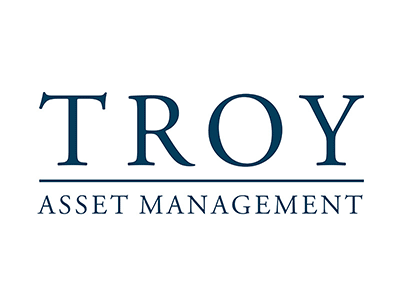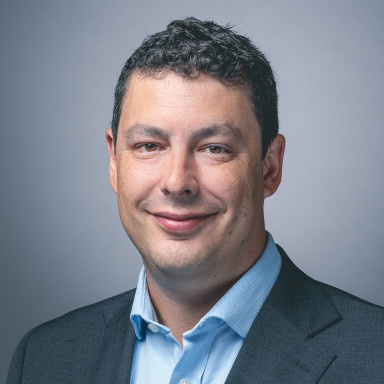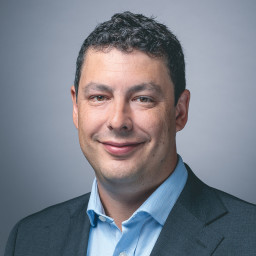Lead manager Sebastian Lyon is part-owner of Troy Asset Management so we think he's incentivised to perform
We like the simple philosophy behind this fund, with the potential for long-term growth and a focus on limiting losses in weaker markets
The fund has outpaced inflation since it launched in May 2001
This fund is on the Wealth Shortlist of funds chosen by our analysts for their long-term performance potential
How it fits in a portfolio
Troy Trojan aims to grow investors' money steadily over the long run, while limiting losses when markets fall, rather than trying to shoot the lights out and perform strongly at all times.
The fund tries to experience less ups and downs than the broader global stock market or a portfolio that's mainly invested in shares. As a result, it could form the foundation of a broad investment portfolio, bring some stability to a more adventurous portfolio, or provide some long-term growth potential to a more conservative portfolio.
Manager
Sebastian Lyon has managed this fund since its launch in 2001, using the same investment philosophy that was founded when Lyon helped to set up Troy Asset Management. He has also managed Personal Assets Trust since 2009 – this is an investment trust that is invested similarly to Troy Trojan.
Lyon is also CIO (Chief Investment Officer) of Troy Asset Management. This position takes up some of his time but he’s previously handed over some of the day-to-day company management responsibilities to capable colleagues. This leaves him to focus more of his time on investment management.
Lyon also has support from Charlotte Yonge, who was appointed as the fund's assistant manager in 2018 and carries out analysis across a range of assets. Overall, we think the team at Troy is strong, capable and stable.
Process
Lyon likes to keep things simple, a quality we like. He aims to shelter investors' wealth just as much as grow it.
To do this, the fund is constructed around four 'pillars'. The first contains large, established companies Lyon thinks can grow sustainably over the long run, and endure tough economic conditions. He’s tended to focus on companies based in developed markets, such as the UK and US. This includes some of the world's best-known companies with highly recognisable brands, such as Microsoft and Visa. Although the fund hasn’t had much exposure for several years, the manager has the freedom to invest in higher-risk smaller companies.
The manager reduced the amount invested in shares to around 25% in June 2022, due to concerns about persistent inflation and the potential for further market falls. The amount currently invested in shares is 28% which is higher than the 22% invested in shares 12 months ago. This increase reflects Lyon’s increased conviction in some of the shares he owns, however overall this level of investment in shares is low compared to history for this fund.
This increase was partly achieved with the purchase of Heineken, the Dutch brewing company. They’ve also added to Diageo, the British beverage company. In both instances, the team at Troy think that there is long term value on offer based on current share prices.
The rest of the fund is made up of investments that could bring some stability to the portfolio during more difficult markets. The second pillar is made from bonds. 36% of the fund is currently invested in US index-linked bonds, which could shelter investors if inflation remains higher than the long-term central bank targets. The fund had a similar amount invested in US index-linked bonds 12 months ago, however they have added some index linked gilts to the fund, increasing the overall amount in this bucket to 40%.
The third pillar consists of gold-related investments, including physical gold, and accounts for 12% of the fund’s assets, a small increase from 11% 12 months ago. Gold can act as a safe haven during times of uncertainty, or perform well when inflation rises or if key global currencies weaken.
The final pillar is cash and short-dated government bonds, where 20% of the fund is held, down from 31% 12 months ago. These investments provide important shelter when stock markets stumble.
While the fund contains a diverse range of investments, it’s concentrated. This approach means each investment can contribute significantly to overall returns, but it can increase risk.
Culture
We like that Troy's fund managers are dedicated to the same investment philosophy that was established two decades ago. The group has always been clear about the way its range of funds are managed, and the managers don't stray into overly complicated areas of investment markets. Wealth preservation is key, and each manager adheres to this mantra.
Lyon is a part-owner of Troy Asset Management, so we believe he's incentivised to perform, and for his funds and the business to do well over the long term. Other senior members of the group also own a part of the business, and we think this contributes to the stability and loyalty of the team.
While Troy is home to a small, close-knit team of investors, the group has recruited more junior members over the years to boost resource and ensure the funds are left in good hands as and when more senior members retire. Despite the team’s growth we think Troy has remained a very collegiate unit with all members able to have input.
In March 2024 it was confirmed that Lincoln Peak Capital, a private equity firm, had purchased a minority stake in Troy Asset Management. They have purchased their stake in the company from the Weinstock family, who previously were the largest external shareholder of the firm. It is not expected that this will have an impact on how the funds are managed and as part of the transaction, employees have increased their overall ownership of the company.
ESG Integration
Troy Asset Management has been formally incorporating environmental, social and governance analysis (ESG) into its investment processes for a number of years, but it came from a strong starting point. It has always been focused on the sustainability of returns and the fund managers are long-term investors.
In recent years Troy’s investment team has formalised the way they incorporate ESG and the way they talk to investors about it. ESG is integrated using a materiality-based approach, meaning the managers focus on the issues they deem to be most material. They also have access to third party ESG research.
Engagement and voting are the responsibility of the investment team. All votes are discharged, and usually cast in favour of management proposals unless the team believes investors’ interests are better represented by abstaining or voting against management. Their preferred course of action is to have dialogue with management ahead of casting a vote against. The firm publishes a summary of its ‘significant’ votes in its annual ‘Engagement and Voting Disclosure’ report, along with rationales for voting both in favour and against proposals. They also produce a quarterly Responsible Investment report, which includes voting and engagement statistics and case studies.
We believe ESG risks are comprehensively considered for all investments held in this fund, and that the ESG-related processes are robust. That said, this isn’t an exclusions-based or responsible investing fund, which means it can invest in any sector.
Cost
This fund has an ongoing annual charge of 0.86%, but we've secured HL clients an ongoing saving of 0.25%. This means you pay a net ongoing charge of 0.61%.
The fund discount is achieved through a loyalty bonus, which could be subject to tax if held outside of an ISA or SIPP. The HL platform fee of up to 0.45% per year also applies, except in the HL Junior ISA, where no platform fee applies.
Performance
The fund aims to achieve growth ahead of inflation (as measured by the UK retail price index) over the long run, which it’s done successfully since it launched in May 2001. It’s also performed better than the broader UK stock market, which we think is impressive for a more conservative fund. Over this period, the fund has risen 344.12%* compared with 263.67% for the FTSE All-Share.
It's also achieved this with less volatility than the market. But remember past performance isn't a guide to future returns.
Avoiding large losses has been an important characteristic of the fund and it has tended to come into its own and hold up well in weaker markets, such as the bursting of the tech bubble in 2001-2002 and the global financial crisis in 2008. We saw this again in the first part of 2020 when global markets stumbled amid the coronavirus outbreak. The fund is not likely to keep up when share markets are performing strongly, but we expect this given its cautious approach. Importantly we expect it to provide some shelter when markets fall.
The fund lagged the broader UK stock market over the past 12 months, returning 2.90% compared with 7.50% for the FTSE All-Share. It also lagged inflation, with the UK Retail Price Index (RPI) rising 3.27%.
At a high level, all of the categories of investments in the fund added value over the 12 months. Gold in particular provided a good return for the fund, as its price has risen dramatically since the start of October 2023, with some large increases so far in 2024.
The funds investments in shares were also positive overall, with shares in Alphabet (Google), American Express, Microsoft and Visa all performing particularly well. These gains were offset by some losses from other shares though. Holdings in Nestle and Diageo were some of the worst performing investments for the fund.
Bonds generally added value, particularly the investments in shorter-dated government bonds. While index-linked bonds were broadly flat over the period.
The fund has been defensively positioned over the 12 months due to the managers’ view that there is likely to be a recession after the significant increases to interest rates. This has meant that the fund has had less invested in shares that it might have done, which in turn has meant that the fund hasn’t seen as much growth as the UK stock market. However, this performance profile is very much aligned with the philosophy of the fund, which is to protect capital first and look to generate growth where possible.
In this context, the returns have been reasonable. And with inflation coming back closer to target in the UK, the fund has a greater chance of keeping pace or outperforming inflation going forward. But of course, there are no guarantees.
Annual percentage growth
30/04/2019 To 30/04/2020 | 30/04/2020 To 30/04/2021 | 30/04/2021 To 30/04/2022 | 30/04/2022 To 30/04/2023 | 30/04/2022 To 30/04/2023 | |
|---|---|---|---|---|---|
Troy Trojan | 8.60% | 8.36% | 7.96% | -1.44% | 2.90% |
UK Retail Price Index | 1.53% | 2.90% | 11.13% | 11.42% | 3.27% |
FTSE All Share | -16.68% | 25.95% | 8.72% | 6.04% | 7.50% |


